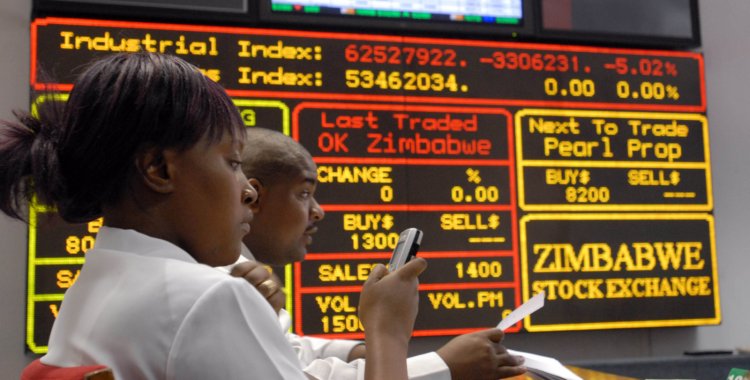Evidently the statement that the capital market in Angola represents an unavoidable path towards guaranteeing the robustness of the financial system, if in the past it was just an optimistic market cliché, imbued with the market promotion component, today it represents an absolute truth.
In fact, the development of the capital market in Angola and extensively of the Stock Exchange, as the highest point of that market, was accompanied by two antagonistic perspectives, namely: (i). The first perspective considers the existence of the capital market only with companies listed on the stock exchange; (ii). The second perspective considers that from the moment there is a stock market even if only public debt instruments are traded, “Habemus market”.
Certainly from the point of view of scientific objectivity, it is popularly assumed that the first perspective presented that considers the market in fact with the existence of companies listed on the stock exchange, as being the most assertive and for this reason, we consider the paradigm as a point of reflection of Public Companies in Angola. Does the emergence of public offerings mark the apotheosis of the evolution of the capital market in Angola?
Despite Law 22/15 - Securities Code, reserving the safeguard of regulatory bases relating to the process of opening share capital on the stock exchange, in practical terms the paradigm of open companies in Angola represents a new reality, the prelude of which we can consider the day June 2022 with the respective admission of shares to the Stock Exchange Market.
Evidently, it can be stated that the essence of an “open company is not to be closed”, in accordance with CMC Regulation No. 6/16 of June 7th – Issuers, an open company is the issuer in the form of a commercial company, whose capital is open to public investment, particularly as a result of its actions to the public or admission to trading on a regulated market.
Therefore, it cannot be assumed that all legal entities, constituted as public limited companies, are consequently open companies, and for a company to be considered open, it is essential that it meets the following aspects:
- Company issuing shares or other securities that confer the right to their subscription or acquisition and that are admitted to trading on the Stock Exchange market;
- The company issuing shares or other securities that grant the right to subscription or acquisition that have been sold in a public sale or exchange offer in an amount exceeding 10% of the share capital specifically aimed at people residing or established in Angola;
- The company resulting from the split of a public company or that incorporates, by merger, all or part of its assets.
Along this path, it is essential not to confuse two milestones that recently occurred in the capital market in Angola, namely: (i). Admission of shares on the Over-the-Counter Market (BCI) and Bonds (GRINER); (ii). Public Offer for the Sale of Sonangol Bonds.
Now, the process of admitting shares on the over-the-counter market is less demanding than the stock market, however, through this route the company does not actually become a publicly-held company. On the other hand, the process of issuing bonds through a public offering, similar to Sonangol's recent operation, does not represent the opening of share capital on the stock exchange, due to the characteristics of the instrument.
Therefore, the process of opening share capital on the stock exchange ends up being exclusively associated with the admission of shares to the stock market. Certainly, the analysis of the paradigm of open companies in Angola draws attention to the procedures to be followed for this purpose, as identified below:
The existence of a functional and transparent stock exchange with companies listed on the stock exchange is considered the highest spectrum of a market economy. On the one hand, the country enters the range of markets with a certain financial robustness, and on the other hand, the open society ends up entering a kind of “champions league” in which the information transmitted to the market is based on transparency.
In this sense, a public company forming part of a “champions league” is subject to a very high regime compared to other companies provided for in Law No. 1/04 of 13 February – Commercial Companies Law (LSC). Therefore, since information is the basis of transparency, without prejudice to other information provided for in terms of market regulation, it is essential that public companies comply with the minimum level in terms of information sharing, as highlighted below.
At a stage in which the process of public offering for sale and subscription of ACREP shares is underway, it appears that currently in terms of open companies, Angola has BAI and BCGA which together generate a market capitalization of KZ 943 .50 billion kwanzas.
As mentioned, the existence of open companies in a market creates a range of opportunities and the perfect portrait of the performance of a given economy evaluated in the fair value component of its companies.
It is in this dimension that it can be considered that the existence of companies listed on the stock exchange has allowed for a greater evolution of the capital market in Angola, with them being fully scrutinized by the public and which also monitors their performance at the same time. market level.
Source: BODIVA
Finally, in a phase of new challenges for the capital market in Angola, with the respective expansion of the issuer base, the expectation is that the paradigm of open companies will be intrinsically associated with market growth, thus signifying a sign of greater transparency for Angolan companies.
Previous
The opinion of... Manuel Marques








